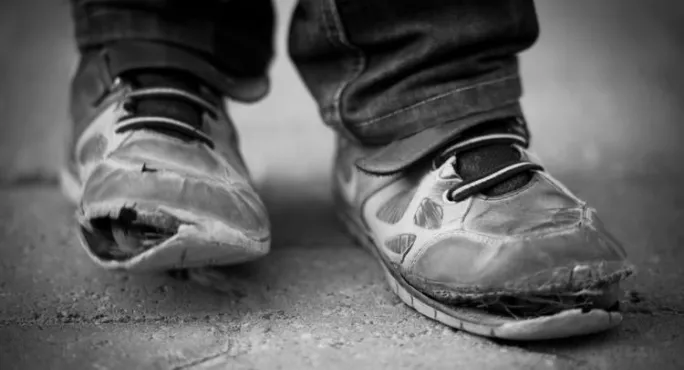Almost nine in 10 teachers surveyed by the National Education Union believes poverty is significantly affecting their pupils’ learning.
A report that the union published jointly with the Child Poverty Action Group paints a bleak picture of schools giving children food, washing their clothes and offering their families debt advice, and having to prioritise pupils’ basic needs ahead of the school’s performance.
In the survey, 87 per cent of the 908 respondents said poverty affected their pupils’ learning to a “significant extent”, while 60 per cent said poverty in their school had got worse since 2015.
Jane Jenkins, the head of an inner-city primary in Cardiff, said: “We supplement, regularly, packed lunches that children bring. Some have a slice of bread with some margarine - that’s all they have for lunch.”
“It is really tough,” she added. “When people are asking you things like ‘why is your school not higher in the league tables’, often that is very much a secondary consideration for us these days.”
The survey highlighted services being provided by schools to help pupils from deprived backgrounds:
- 18 per cent of respondents said their school runs a low-cost food club
- 16 per cent said it offers free or subsidised family meals
- 16 per cent said it has a clothing bank
- 12 per cent said it launders clothes on school premises
- 4 per cent said it provides emergency loans to families
Amanda Martin, a primary teacher in Portsmouth, said one local secondary timetabled a double PE lesson for a girl so it could wash her clothes.
She said that during the lesson “her clothes were removed from her coat peg, washed, dried and put back on so she has clean clothes for a week”.
She added that while she had always had knickers in her cupboard and provided pencils and pencil cases, “the difference is the number of kids you are now having to provide that for. It was always the one or two kids, now it is seven, eight, nine, 10 of those kids.”
Howard Payne, a primary head in Portsmouth, said he opened his school during last month’s snow “because I was really worried about the number of children who wouldn’t have a hot meal that day”.
Other teachers warned about the impact on children who rarely see their parents because they are holding down two or three low-paid jobs with odd shift patterns.
Anne Swift, a former headteacher in Scarborough, said: “The children come in very angry and very frustrated and then we get some of these social and emotional problems that are exhibited by children, which are further compounded by the lack of support services to support them.”
A DfE spokesperson highlighted the government’s social mobility action plan, launched in December, which sets out measures to close the attainment gap between disadvantage students.
He added: “Alongside this we continue to support the country’s most disadvantaged children through free school meals, the £2.5 billion funding given to schools through the pupil premium to support their education and the recently announced a £26 million investment to kick-start or improve breakfast clubs in at least 1,700 schools.”




